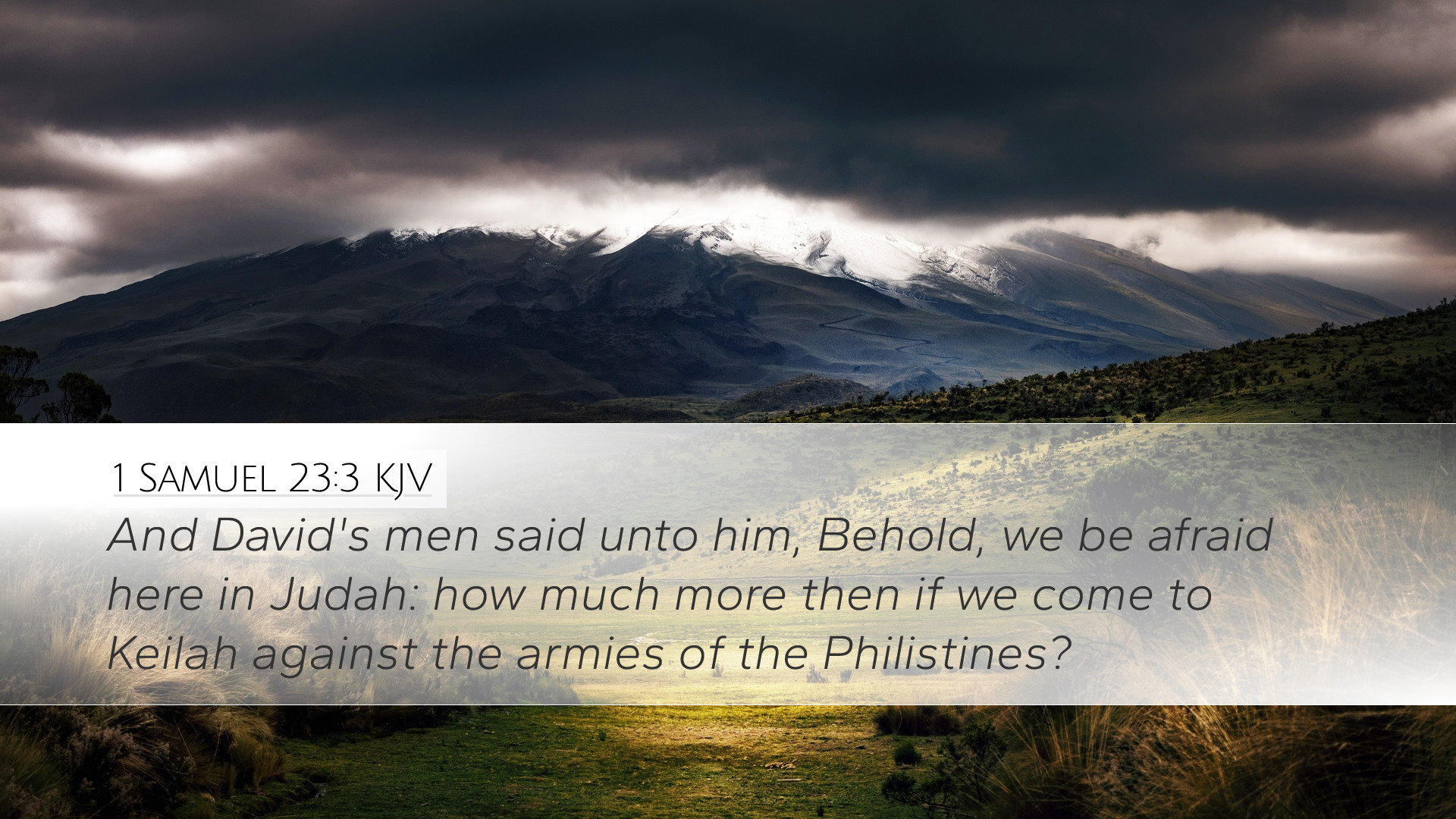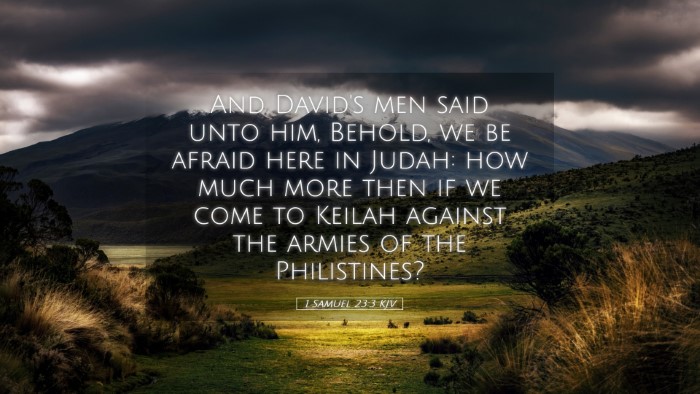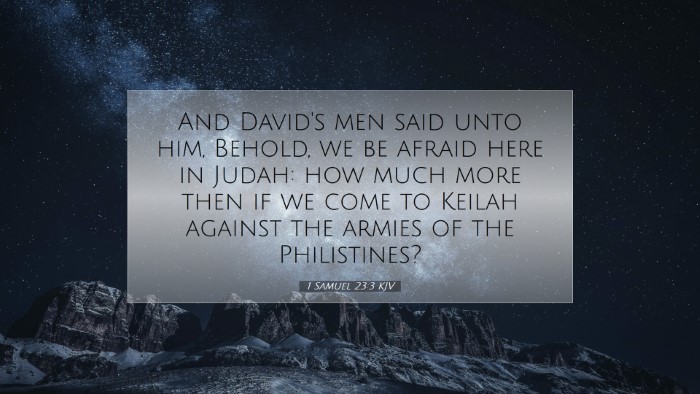Commentary on 1 Samuel 23:3
Verse Reference: 1 Samuel 23:3 - "But David's men said to him, 'Look, we are afraid here in Judah. How much more then if we go to Keilah against the armies of the Philistines?'"
Contextual Background
This verse is situated in a critical juncture in David's life as he is fleeing from King Saul. David is currently in a position of leadership and must balance the safety of his men with the calling to engage in the battle against the Philistines. The commentary from Matthew Henry, Albert Barnes, and Adam Clarke provides a rich understanding of David’s situation as well as the dynamics of leadership and faith amidst fear.
Insights from Commentaries
Matthew Henry's Commentary
Matthew Henry emphasizes the fear that David's men experience. He notes that their fear is rooted in the current circumstances, suggesting that they perceive the conflict with the Philistines as being higher in risk than their present situation. Henry elaborates on the psychological aspect of fear as it pertains to leadership, emphasizing how fear can incapacitate decision-making and lead to a lack of faith.
Additionally, Henry draws attention to the importance of God’s guidance in making decisions. He suggests that while fear is a natural reaction, it should not govern our choices, especially when one is called to serve God's purposes. The men’s reluctance to proceed to Keilah reflects a broader theme of trusting God's plan versus reacting to fear.
Albert Barnes' Notes
Albert Barnes elaborates on the specifics of the situation David faces, noting that David’s men are already in a hostile environment—Judah is not completely safe. There is an implied understanding that if they were to confront the Philistines, they would be stepping into a significantly more dangerous and uncertain situation.
Barnes extensively discusses the implications of military strategy in David’s approach. He points out that David’s men are forecasting the consequences of going to Keilah and weighing their likelihood of survival, indicating a pragmatic yet fearful perspective. This adds layers of complexity to the narrative of faith and bravery in the face of overwhelming odds.
Adam Clarke's Commentary
Adam Clarke provides crucial cultural and historical context surrounding the decision to confront the Philistines at Keilah. He explains that Keilah is a fortified city, but one under threat from a formidable enemy, the Philistines. Clarke reflects on the negotiations and tensions that likely existed between David and his men, underlining the significance of unity and support in such perilous times.
In addition, Clarke comments on the dynamics of leadership and the burden thereof. David, as a leader, must contend not only with his own fears but also with the fears of those he leads. Clarke emphasizes the need for leaders to be mindful of the morale of their followers and how fear can spread and hinder collective action.
Theological Themes
The tension in this verse brings forward significant theological themes worthy of consideration:
- Faith versus Fear: The struggle between trusting God and succumbing to fear is a recurring motif in biblical texts. David's men illustrate a human tendency to prioritize immediate dangers over divine promises.
- Divine Providence: The verse implies a reality where God’s guidance is crucial, particularly in dangerous situations. The discernment that David seeks reflects an understanding of divine providence in guiding decisions.
- Leadership Responsibility: David’s predicament underscores the weight of leadership. Leaders must often make decisions that affect not just themselves, but also those they lead. This theme remains relevant for contemporary leaders in faith-based communities.
Application for Today
The analysis of 1 Samuel 23:3 invites readers to reflect on their own fears and leadership roles within their communities. Here are a few applications to consider:
- Identify areas in your life where fear may be hindering your faith or decisions. How can you seek God’s guidance in these situations?
- Consider the impact of your leadership on those around you. Are you fostering an environment of faith or one dominated by fear?
- Reflect on the importance of community in navigating struggles. How can you support one another in challenging circumstances, as David’s men did for him?
Conclusion
1 Samuel 23:3 serves as a profound reminder of the complexities of leadership, the reality of fear, and the unwavering necessity of faith in God. By examining the insights from respected commentators, modern readers can find depth in the struggles articulated in the text. This understanding encourages a richer application of biblical principles in both personal faith and communal leadership, urging a collective reliance on God’s purpose and psychospiritual resilience.


